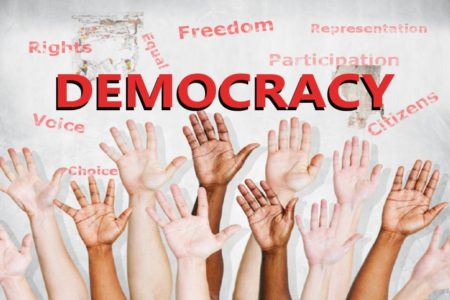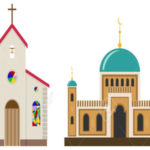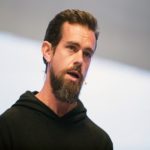DEMOCRACY, which allows people to elect and replace their government, is one of the greatest political inventions ever witnessed. It ensures that all constituents are adequately represented in government. The voice of every citizen matters in a good democracy. Hence, the potential of democracy to improve the social and economic wellbeing of all Nigerians created high expectations as the Fourth Republic commenced in May 1999. Regrettably, Nigerians’ wishes are far from being realized. The dividends of democracy are yet to emerge. It is time we revitalized critical institutions in order to make our democracy work. Thus, the roles of the following institutions are examined with a view to improving on their performances in our emerging democracy: political parties, National Population Commission, the Independent National Electoral Commission, the judiciary, national and state legislatures, and the executive. How has each of these institutions fared?
The two dominant political parties, APC and PDP, have demonstrated appalling failure to adhere to the tenets of internal democracy. Their party apparatchiks, acting as godfathers, often frustrate primary elections in order to give nominations to their favoured candidates. This has led some of the aggrieved contestants within theparty to challenge the eventual candidates in court.The imposition of candidates at the party level has often had adestabilizing effect on them.Nigerian political parties must correct this anomaly by serving as a platform of equal opportunities for all members. The winners of transparent primary elections must be adopted and promoted by their parties for general elections. Every political party must eschew violence before, during and after elections. All parties must cooperate with the electoral officials to ensure free and fair elections. Losers must readily congratulate winners without overburdening our courts with unnecessary litigations. This is how it is done in advanced democracies. We must be prepared to adopt global best practices in our democratic journey.
The National Population Commission has an important role to play in the electoral process. The Commission must produce credible census figures for Nigeria. This will enable us to have reliable demographics of every electoral unit. It will be easy to prevent fraudulent registration of voters. Again, the age distribution of each state will help us correct the problem of underage voters.
Considering the rate at which the courts have been overturning the results declared by the Independent National Electoral Commission, one can conclude that the electoral agency has performed abysmally. Its activities are marred by poor preparations. A case in point was the postponement of the February 16, 2019 Presidential and National Assembly elections on the day of the election. The electorate were frustrated and this reduced considerably the number of voters that participated in the election a week later. The frequency of declaring some elections inconclusive has also fueled the opinion that INEC officials are complicit in a number of electoral disputes that have arisen. It is therefore imperative that the Commission hires competent and well motivated personnel for the perfect conduct of elections. No expense must be spared in training and retraining electoral officials. In addition, the chairman and other executives of INEC may need to understudy similar agencies in the United Kingdom, the United States and Canada. All hands must be on deck to ensure that our elections are free and fair.
The judiciary is very important in a democracy. Its role in the interpretation of law and dispute resolutions cannot be overemphasized. However, certain factors are beginning to make people lose confidence in the country’s justice system. Some of these include the allegations of corruption against some judges as evidenced by their arrests and prosecution.The preponderance of courts of equal jurisdiction to give countervailing judgments on same cases. The imbalance in the structure of the Supreme Court to the degree that the Chief Justice is always appointed from the North. Also, recent judicial decisions on electoral matters are causing people to doubt the soundness of court judgments. We need to retool the judiciary. Brilliant professors of law should be given the opportunity to serve as judges in all the courts. Law academics will be able to adjudicate disputes with the aid of their robust research background. Nigeria did this earlier when the late Taslim Olawale Elias, law professor and dean in University of Lagos, was appointed as the Chief Justice of Nigeria in 1972. His tenure was so successful that the International Court of Justice noticed his unassailable contributions. As soon as he left the position in 1975, he was appointed as a justice of the World Court and he rose to become its president. Such jurists can still be head hunted from our universities to help rescue the judiciary.
Our National Assembly and the State Houses of Assembly should collaborate on how to expedite the amendment of the Constitution. The power to make subsequent amendments should be given to the people by allowing them to participate in referendums. Consequently, the citizens will be able to facilitate the restructuring of Nigeria. It is important that the country transforms into a truly Federal System in order to meet the aspirations of all federating units. The instrumentality of referendums will make this objective possible. Often, the majority of Nigerians see the president as the government. If things are properly done, the president is praised. If the results are otherwise, the president is reprimanded. Therefore, the executive under the leadership of the president must put national interest above all else. Policy formulations and implementations must speed up poverty alleviation, job creation, renewal of infrastructure, and security of lives and property. The approach to education must ensure that no child or region is left behind. Health services must compete with the best in the world. The attainment of these lofty goals will give us the Nigeria of our dream. The evidence of a functional democracy in Nigeria will become incontrovertible.
- Professor Osunyikanmi is of the Department of Political Science and Public Administration, Adekunle Ajasin University, Akungba-Akoko Ondo State.
YOU SHOULD NOT MISS THESE HEADLINES FROM NIGERIAN TRIBUNE
Buy and read digital replicas of your TRIBUNE titles by subscribing through E-VENDING
COVID-19: Afe Babalola Offers 15-Point Prescriptions For Resumption Of Schools
The Founder and Chancellor of the flourishing Afe Babalola University, Ado-Ekiti (ABUAD), Aare Afe Babalola (SAN), has offered prescriptions on how the Federal Government can reopen schools and universities … Read full story
60-Year-Old Nigerian Woman Who Was A Nurse For 40 Years Dies Of Coronavirus In UK
An ‘exceptional’ mother-of-four nurse who devoted her life to terminally-ill children has become the latest healthcare worker to be killed by coronavirus in Britain, the Daily Mail of UK reported. Eyitolami Olaolorun had been a nurse for 40 years, most recently working at Wellington Hospital, a private centre in St John’s Wood… Read full story
COVID-19: Buhari, APC Betrayed Almajarai, Poor Nigerians ― PDP
President Muhammadu Buhari and the ruling All Progressives Congress (APC) have completely betrayed almajarai and other downtrodden, poor and vulnerable Nigerians after using them to get into power in 2015, the Peoples Democratic Party (PDP) has alleged… Read full story
Unpaid Salaries: Polytechnic Staff Seek Akeredolu’s Intervention
Staff of the Rufus Giwa Polytechnic, Owo, Ondo State have called on the state governor, Mr Rotimi Akeredolu to intervene in the crisis in the institution, over the non-payment of their salaries for six months by the management of the institution… Read full story
I Rejected N8m To Promote Bleaching Creams, Says Ex-Big Brother Naija Housemate, Khafi Kareem
A former housemate of reality show, Big Brother Naija, Khafi Kareem, on Monday, May 11, spoke on how she rejected the sum of N8 million for promotion of bleaching creams from a company producing them. Khafi, who had a brush with her employer, the British Metropolitan Police, for taking part in the reality show and who… Read full story
The Wasting Fruits Of Benue
From time, Benue has maintained its prominence of being the food basket of the nation. It simply implies that the state is blessed with arable farmland. Aside this, it also plays host to the second largest river in the country, River Benue as well as other streams that run throughout the year, thereby providing accessible… Read full story
POLITICS: Predatory Politics Is The Norm Since The Passage Of Awo —Shonibare
Apart from Chief Obafemi Awolowo’s photograph being hung in the most prominent part of the wall in the main sitting room of our home and the fact that, even at primary school (Oke- Ira Primary and Preparatory School- which was the preparatory school of St Saviour’s School, Railway Compound, Ebute- Metta)… Read full story
Unity Meets Industry: How Igbajo People Built Century-Old Plank Business In Ibadan
Although Bodija timber market is the headquarters for the purchase of timber in Ibadan metropolis, the Sango market could be called a mega market in terms of size, operation and system of administration. The history of Sango timber market is the history of Igbajo community in Ibadan since the 1920s. Igbajo is ancient… Read full story
Infections Of The Infectious Diseases Bill
On October 5, 2018, the National Assembly passed the Nigeria Centre for Disease Control Bill, which was assented to by the President and thus became an Act on November 8, 2018. This Act is part of the laws of the Federal Republic of Nigeria, being an Act of the National Assembly, which is comprised of representatives of… Read full story






